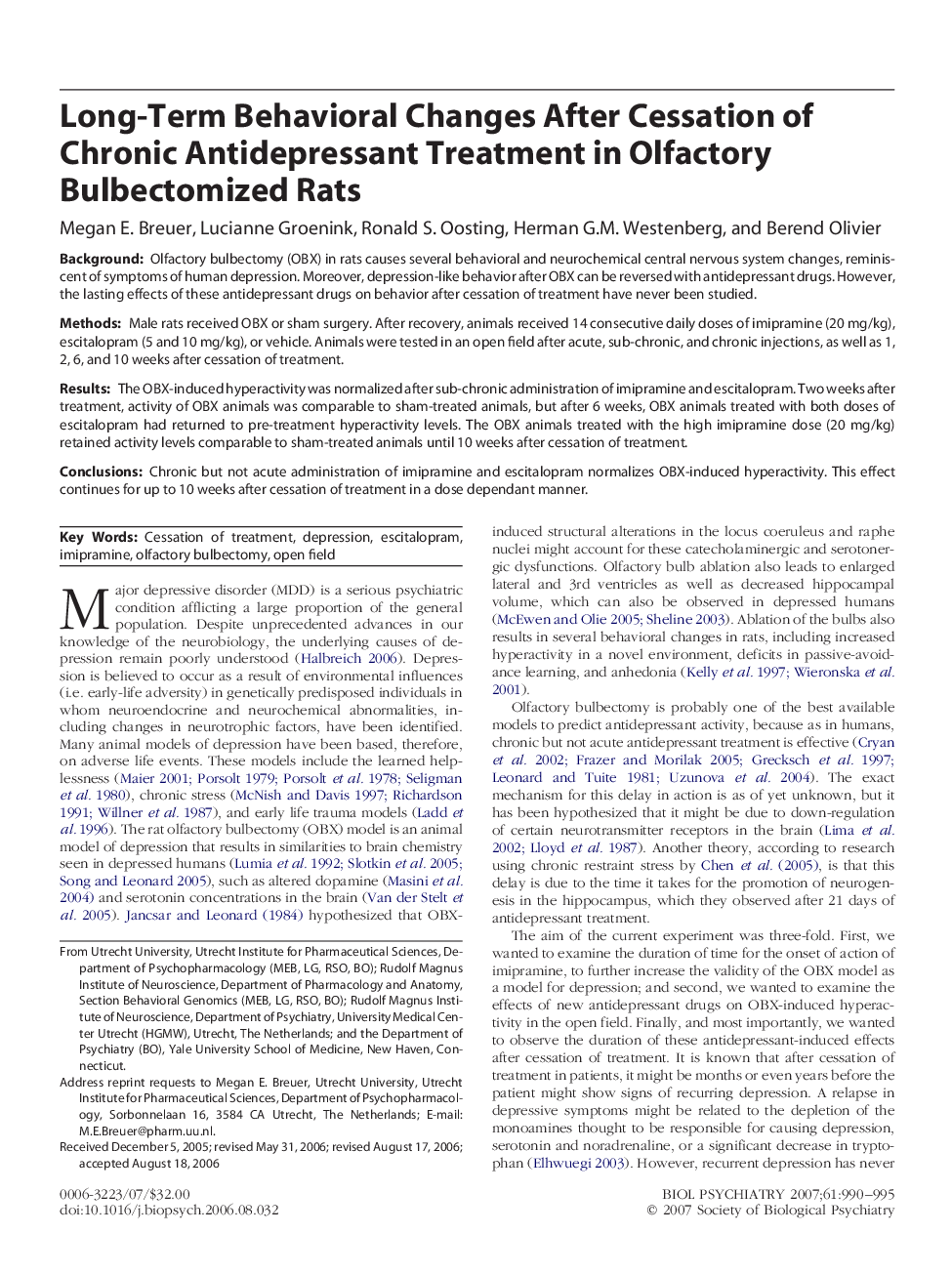| Article ID | Journal | Published Year | Pages | File Type |
|---|---|---|---|---|
| 4181015 | Biological Psychiatry | 2007 | 6 Pages |
BackgroundOlfactory bulbectomy (OBX) in rats causes several behavioral and neurochemical central nervous system changes, reminiscent of symptoms of human depression. Moreover, depression-like behavior after OBX can be reversed with antidepressant drugs. However, the lasting effects of these antidepressant drugs on behavior after cessation of treatment have never been studied.MethodsMale rats received OBX or sham surgery. After recovery, animals received 14 consecutive daily doses of imipramine (20 mg/kg), escitalopram (5 and 10 mg/kg), or vehicle. Animals were tested in an open field after acute, sub-chronic, and chronic injections, as well as 1, 2, 6, and 10 weeks after cessation of treatment.ResultsThe OBX-induced hyperactivity was normalized after sub-chronic administration of imipramine and escitalopram. Two weeks after treatment, activity of OBX animals was comparable to sham-treated animals, but after 6 weeks, OBX animals treated with both doses of escitalopram had returned to pre-treatment hyperactivity levels. The OBX animals treated with the high imipramine dose (20 mg/kg) retained activity levels comparable to sham-treated animals until 10 weeks after cessation of treatment.ConclusionsChronic but not acute administration of imipramine and escitalopram normalizes OBX-induced hyperactivity. This effect continues for up to 10 weeks after cessation of treatment in a dose dependant manner.
